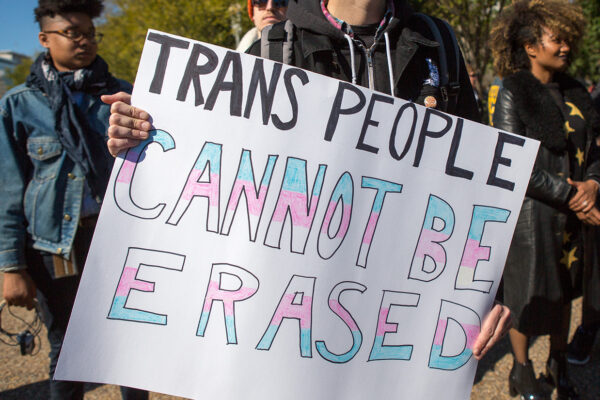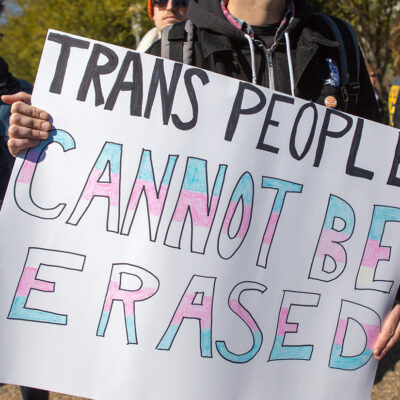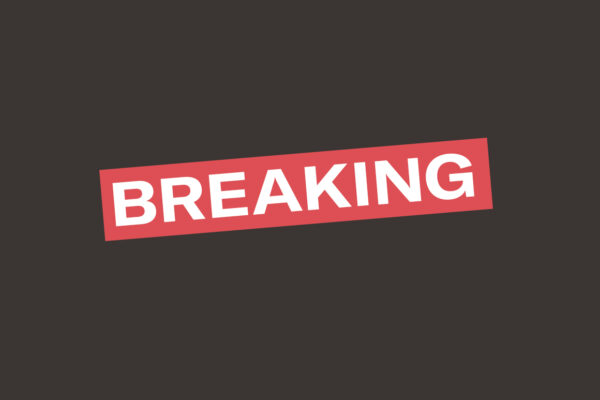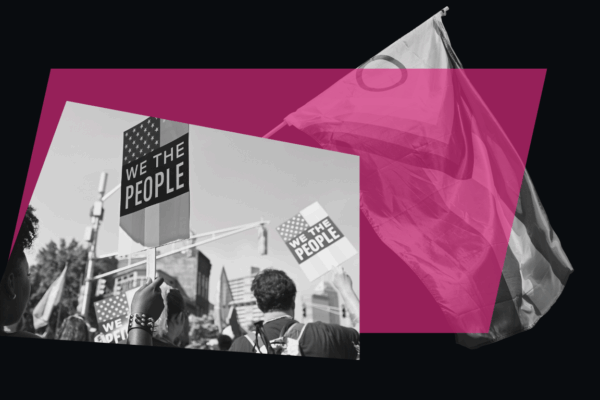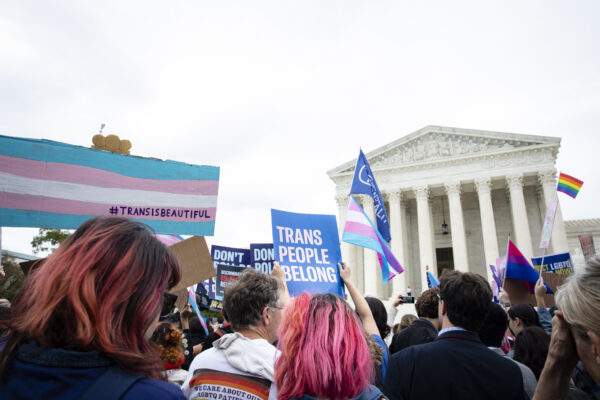On February 27, the U.S. Court of Appeals for the Seventh Circuit allowed to go into immediate effect a horrific Indiana law that prohibits transgender youth from accessing medical care that is safe and the best practice for supporting their health and wellbeing. The law, passed in 2023, is one in a series of laws that Indiana elected officials have imposed on our state in the last decade to drive LGBTQ Hoosiers away. Fortunately, the law had never taken effect thanks to a preliminary injunction in a case we brought with transgender youth, their families, and their medical providers – until now.
As soon as news of the court decision hit, the thousands of Hoosier families with transgender youth were forced to begin exploring their options for care – including moving out of state. Assuming a family has the financial means to do so, moving out of Indiana oftentimes means they leave behind grandparents who need care, businesses they built, communities they’ve invested in, and/or a state they love.
Those families who stay in Indiana will be figuring out what they can cut out of their budgets to pay for care out of state and out of pocket. Or they will be looking into unregulated avenues for accessing the medication their children need. There are few good choices for them in the short term.
Because state law now also penalizes medical professionals who serve transgender youth, the same is true for their health care providers. These providers must contend with denying youth the care they know they need despite their mission as health care professionals and the ethical and malpractice risks this may create. They also must contend with the “aid and abet” provision of the law, which prohibits them from referring a family to a doctor in another state.
And all of this misery, uncertainty, and stress is completely unnecessary. The harm being done to Hoosier children because of this law rests with the 101 legislators who passed this bill and Governor Eric Holcomb who signed it. Unprompted by any serious outcry for this action, these elected officials inserted themselves between Hoosier families and their doctors. While perversely claiming they were protecting children and youth, legislators created a crisis for transgender youth and their families and put thousands of young Hoosiers directly in harm’s way.
The clear message the Indiana General Assembly and Governor’s office has sent to LGBTQ Hoosiers over the last decade: go away. But we’re not leaving.
My husband and I and the vast majority of the hundreds of thousands of LGBTQ Hoosiers who call Indiana home aren’t going anywhere. Some of us may need to leave for our safety, health, and sanity, and those of us who are staying completely understand. But the rest of us are staying right here in Gary, Mt Vernon, Corydon, Madison, Richmond, Fort Wayne, Fremont, Mishawaka, and everywhere in between.
We’re digging in and protecting our school districts, our libraries, our places of worship, our communities and each other from whatever insanity the legislature chooses to throw our way next. And we’re not doing it alone. Our extended families, friends, neighbors, coworkers, and faith communities are standing with us.
We’re that part of the state that represents the Hoosier spirit. Whether we were born here or moved here later in life, we’re building our lives in Indiana. We’re treating patients, teaching students, serving food, fixing cars, starting businesses, and contributing to our state’s economic and community wellbeing.
And we’re doing our best to live our lives out loud, proud, and joyful because, as painful as it is, we know this moment of repression is just that – a moment. We know that the laws that attack us and other Hoosier communities will one day be voided by courts or future legislatures.
Of course, that day won’t come by itself. Those of us who want that day have to be able to see it in the distance and work toward getting there. We have to have difficult conversations with people we love who voted for legislators who vote against us. We have to reach out to people who aren’t voting and motivate them to get to the polls. And we have to work in tandem with other communities – many of which overlap with our own – to pull Indiana back from this repressive place so that we can once again live in a state that we recognize and that recognizes us.

